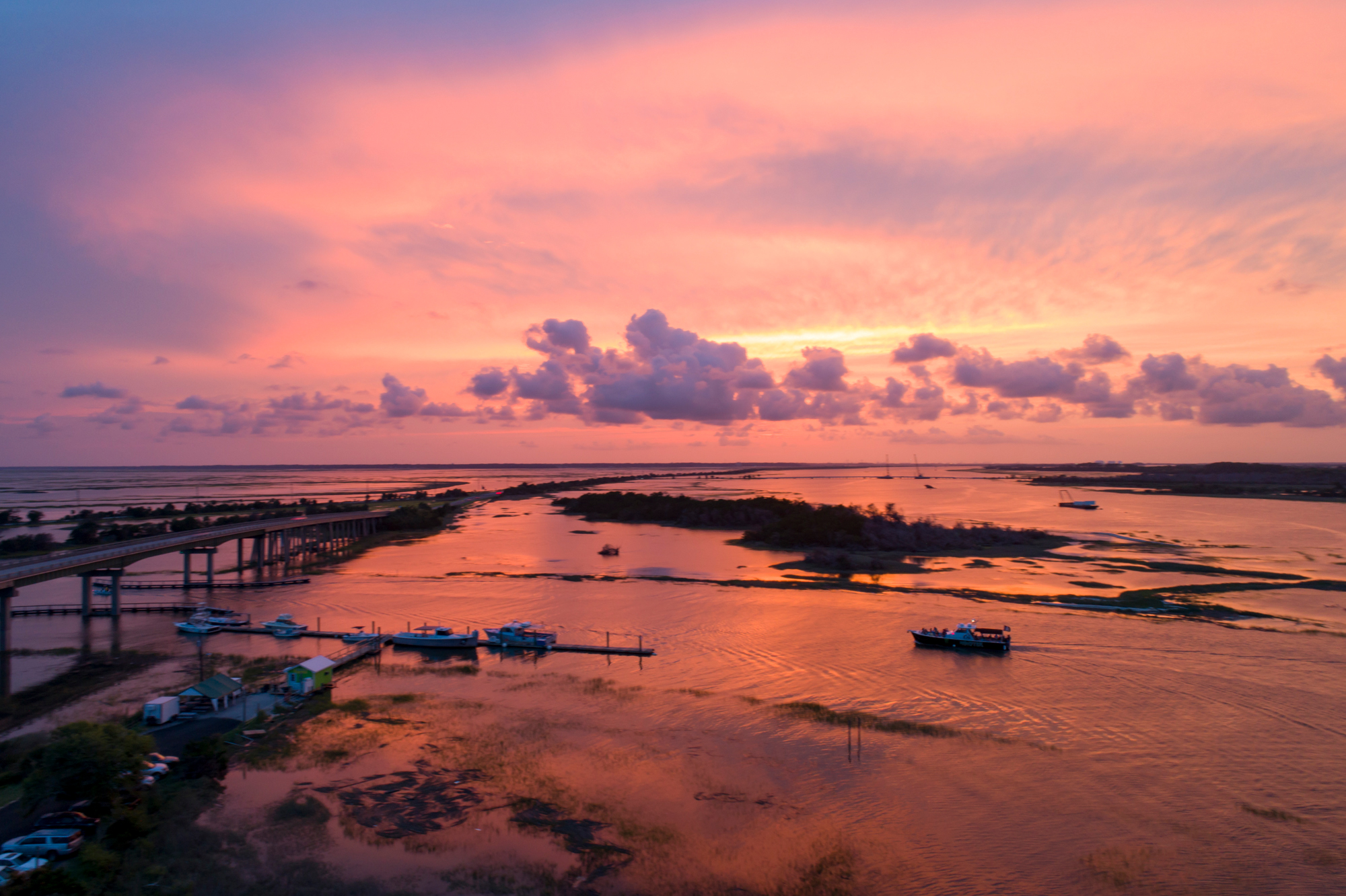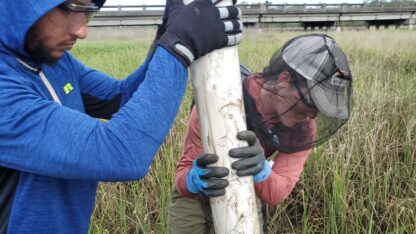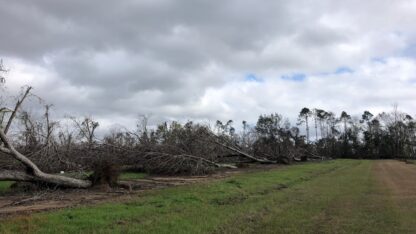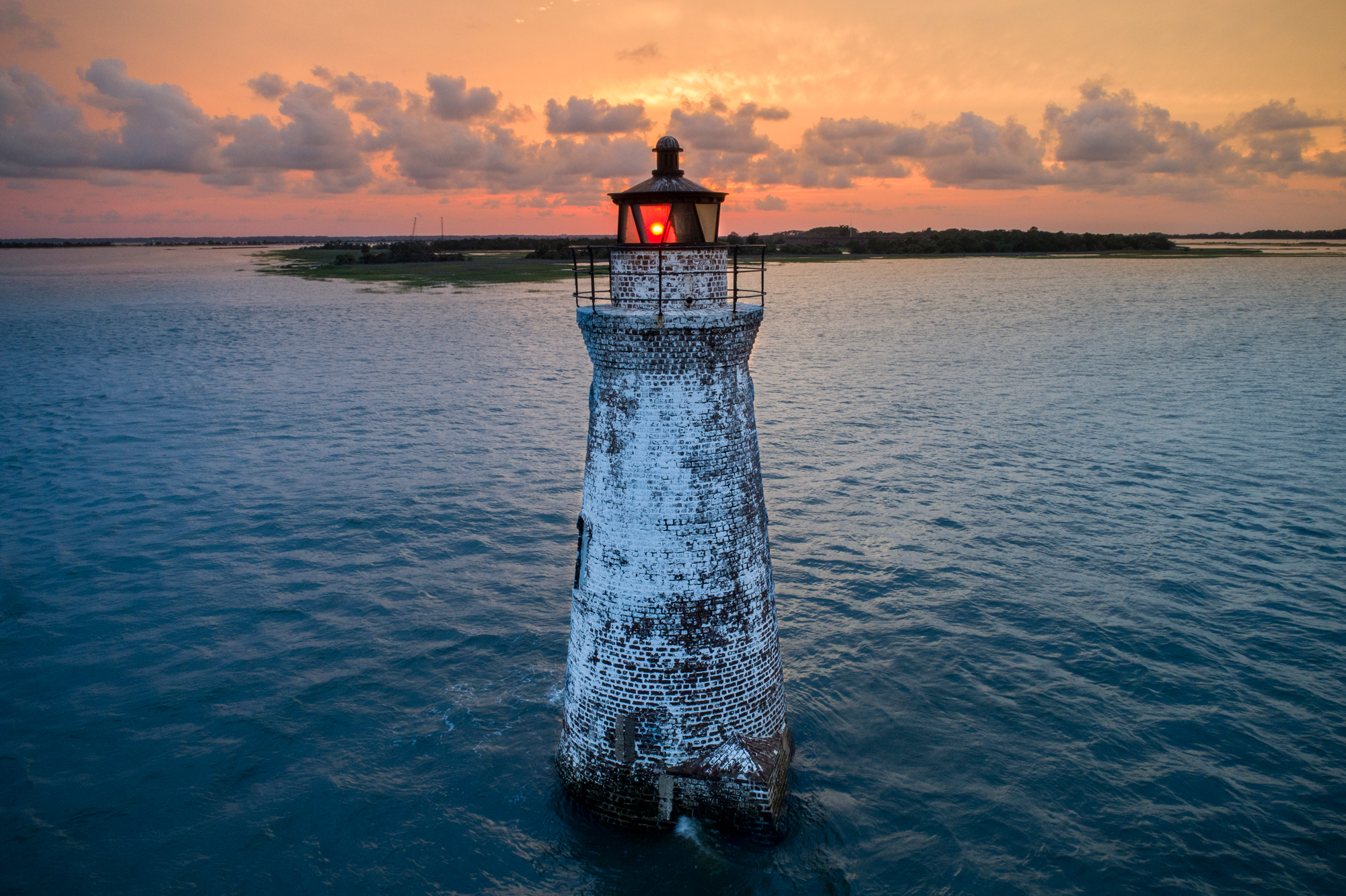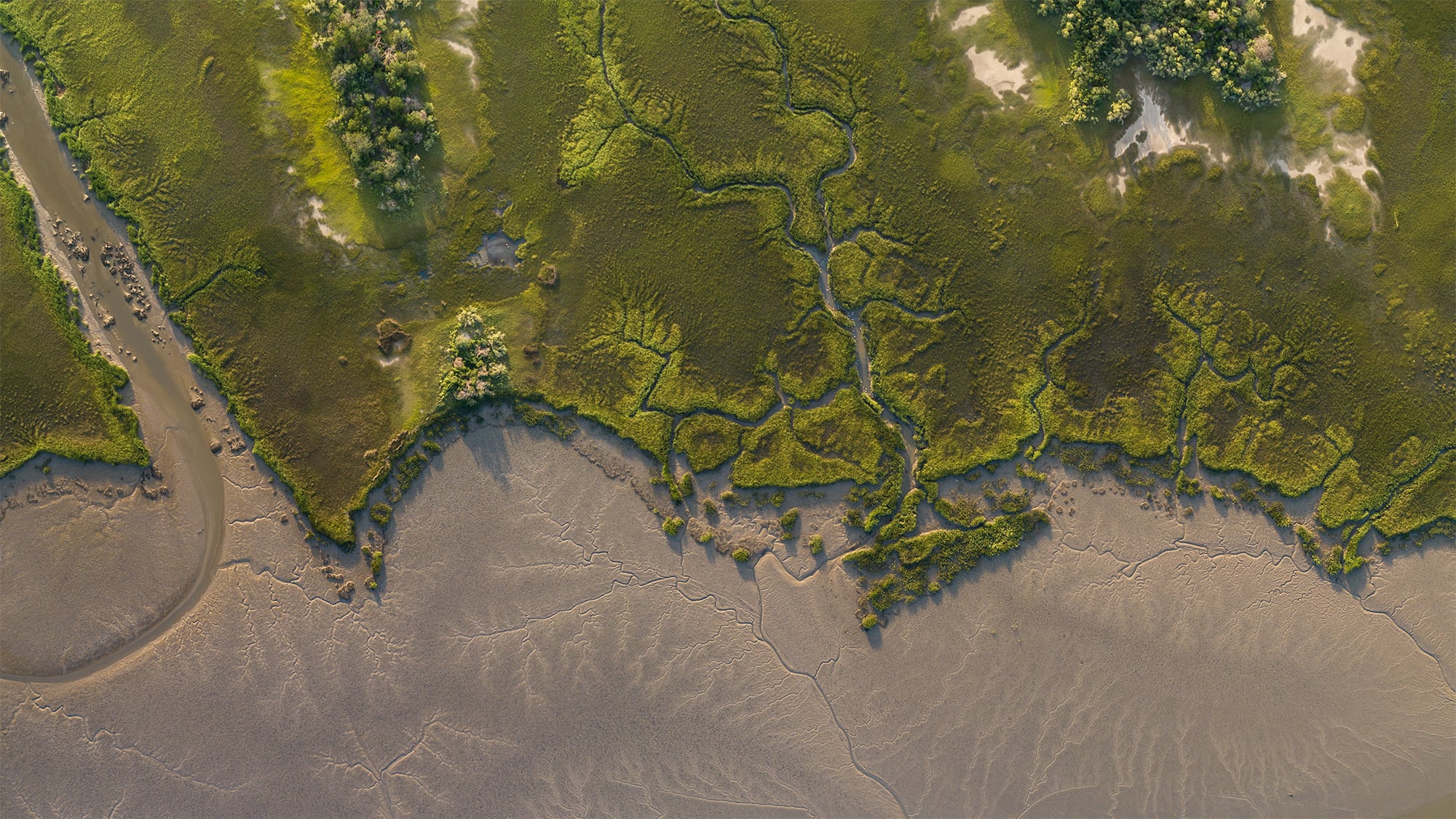When Hurricane Irma hit Georgia last September, Fran Galloway, who’s lived on Tybee Island for nine years, waited out the storm across the street from her house.
She was at a neighbor’s, in one of those houses that’s raised up on stilts. Galloway’s little 1950s bungalow isn’t raised; it sits low on a concrete slab. So she looked down from the taller house as the water washed into hers, below.
“It was so surreal,” she said. “You saw this water coming in, rolling in like a lake, just rolling in. And it kept getting higher and higher.”
It was the third time in three years her house had been flooded. Matthew had hit her, too, in 2016. In 2015, it was an exceptionally high tide, called a king tide.
Floods like that one, with no storm attached, are getting more common. While Tybee residents like Galloway are worried about the next hurricane — and still recovering from the last couple — they also have to face sea level rise.
‘These Are Our Houses, And This Is Now A Lake’
Galloway, who’s semi-retired, doesn’t live on the beach side of the island, which has a slightly higher elevation. Her street is on the low-lying, marshy back of the island, in a neighborhood where people who work on Tybee live.
The houses on both sides of her street have marsh in their backyards. During the hurricane, the water flowed up from that marsh on either side of the street, and Galloway said it seemed like the waves were meeting in her living room.
“It was like, ‘Oh my god, this is my house, these are our houses, and this is now a lake,’” she said.
Matthew, which she’d evacuated for, hadn’t been quite as bad. After that one, she said, “for some reason my stove ended up working, and my washer and dryer actually survived.”
But then, less than a year after Matthew, came Irma, and that lake in her house.
“Irma took everything,” she said. “That just blasted us.”
Galloway is living in her house. Her kitchen is bright and inviting. But she said she feels a little bit like she’s “glamping,” with the studs in her living room walls still exposed.
Ocean Rising
The sea level has already come up here about 9 inches in the past 80 years. In the next 80, it’s projected to rise by another 3 feet or more. It’s a fact of life that people on the Georgia coast are learning to live with.
As greenhouse gas emissions trap heat, the oceans warm. The water in them expands and takes up more space. In cold places, melting glaciers add even more water.’
Higher sea levels mean more floods even when it’s not raining, just caused by high tides, but when there are storms, higher sea levels mean storm surges and waves can reach even farther inland.
“We know sea level rise is happening,” said coastal geologist Clark Alexander, director of UGA’s Skidaway Institute of Oceanography. “There are documented records all up and down the coast of the United States and around the world that show sea levels rising over the last 100 years or so.”
Some of those documented records come from a tide gauge mounted near the mouth of the Savannah River, just a few miles from Fran Galloway’s house. The tide gauge at Ft. Pulaski has been recording water levels since 1935. Alexander says it shows that sea level has been rising here a little more than 3 millimeters a year.
“It is a little small amount per year but once you start adding it up together it ends up to be about a foot per century,” he said.
In the past few years, there’s been a shift in the conversation, from how to stop sea level rise, to how to live with it. “It’s happening, it’s going to be continuing and we need to learn how we’re going to adapt to it,” Clark said.
Adaptation
Last year, Moody’s, the credit rating agency, warned communities that if they’re at risk from climate change, but not doing anything to prepare, their credit rating might get downgraded. A recent analysis by the First Street Foundation, a group advocating for action on sea level rise, found that Georgia properties have already lost about $15 million in value because of flooding and sea level rise.
“Whatever the cause of it is, it’s happening,” said Tybee Island mayor Jason Buelterman. “So we’re just going to have to deal with it.”
It’s not just people’s homes that are affected on Tybee. Beaches erode, stormwater sewers flood. So does the only road connecting the island to the mainland.
“So we have an issue getting the ambulances on and off the island, and people, you know, it affects their commute,” Buelterman said. That includes his commute, since in this small community, being mayor isn’t a full-time job. He also works at a high school that’s not on Tybee.
“I’ve had issues where I couldn’t get into work on time,” he said. “There are not many people in America, they can’t get into work because the tide covers the roadway.”
Buelterman, who’s a Republican, said other elected officials on the coast get it, but people who represent inland areas don’t sense the urgency.
Tybee has taken a lead in Georgia. A few years ago, the island commissioned a sea level rise adaptation plan. Since then, other coastal areas have used that plan as a model for their own.
“There are not many people in America, they can’t get into work because the tide covers the roadway.”
Tybee Island mayor Jason Buelterman
Now, Tybee is putting some of that plan into action; Buelterman said the community can’t afford to make plans that end up just sitting on a shelf somewhere. “I mean we have tried as a small local government to not do useless studies,” he said.
The island has upgraded stormwater sewers, so they won’t flood with saltwater. It’s rebuilding the dunes on the beach, to protect homes from storm surges. The Georgia Department of Transportation is repaving Highway 80 – the road on and off the island – so that it won’t flood as often.
A lot of Tybee’s work on climate change has been driven by now-former city councilman Paul Wolff. Wolff, who rides around the island on his beach cruiser bike greeting neighbors as he goes, has been involved in environmental advocacy since the first Earth Day, in 1970. In his five terms on Tybee’s city council, he led initiatives to get more solar panels on people’s homes and tried to ban plastic bags.
With climate change — and especially with sea level rise — he said Tybee Island is on the front lines.
“I keep telling people, if we don’t do something about it, who will?” he said. “We’ve seen pictures of storm surges, of tsunamis, of stuff like that that has this huge impact. And sea level rise is really just like a storm surge that’s happening in slow motion, and it doesn’t go away, so the effects are just as devastating and more far-reaching, because this is permanent.”
Wolff said he’s an optimist, but in the long run the options are limited.
“Ultimately we’re going to end up retreating,” he said. “People who have invested everything they’ve got into beachfront property are going to be sorely disappointed.”
Trapped In Paradise
With the best case scenario of 3 feet of sea level rise by the end of this century, Fran Galloway’s street will be underwater. In the worst case scenario of 6 feet, most of the island would be.
For now, Galloway is doing what she can. She and many of her neighbors are waiting to hear if the Federal Emergency Management Agency will help pay to get their houses raised up on stilts. She’s waiting to hear if she’ll qualify.
“This is a very long recovery,” Galloway said. “To have our third flood in less than three years, we’ve got to be raised. I mean, we just have to.”
That’s why she hasn’t finished rebuilding since Irma, because her house will have to be nearly gutted again to get raised.
A lot of people in her neighborhood are in that kind of limbo right now, she said. “It’s just like the new normal, every time you run into somebody, how’s your house?”
Still, Galloway loves it on Tybee. The community is amazing, she said. People have helped each other rebuild and clean up. And it’s beautiful.
“It’s paradise,” she said.
But she added, it’s a little like being trapped in paradise, since it’d be hard to sell a house that’s flooded three times in three years.
“The reality is, nature is going to win, and we all know that.”
